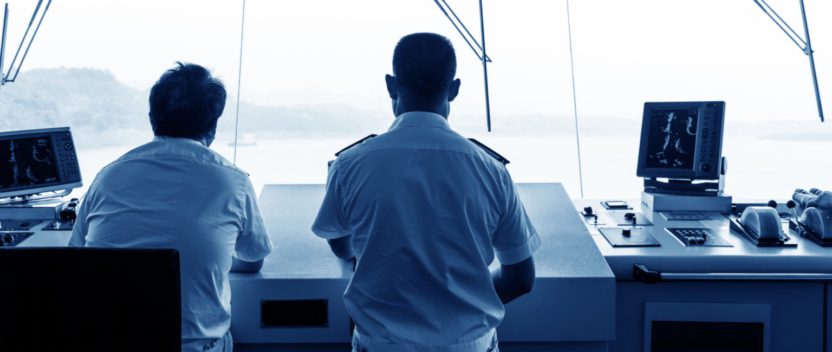A German shipowner walks into a bank…
Here is a joke which illustrates the seriousness of the problems affecting the German shipping market.
Shipowner: “ABC Bank has just arrested my last bulk carrier”.
Lawyer: “Oh dear, which is your best banking relationship now?
Shipowner: “ABC bank of course”
With such grim humour expressed through gritted teeth, did the German ship financing community gather in Hamburg for the Marine Money German Ship Finance Forum. Chairman Stefan Rindfleisch, author of the above bon mot introduced a market which he also defined as ‘horrible, terrifying, depressing, but active’.
German shipping has struggled since the credit crunch, the financial crisis, the low key recovery around the turn of the decade but now has run out of bullets. A market this bad thus proves the assertion: when you owe the banks millions, it is the bank that has the problem.
Part of the reason for the dire straits is the country’s heavy bias towards the container market where it is a significant owner of tonnage for charter and an operator exposed to freight rates. Both are underperforming, to put it mildly.
As Paul Dowell of brokerage Howe Robinson put it, the container market is 11 years into a down cycle and has been on the defensive since 2008/09. “Trying to lower slot costs by building bigger and bigger ships has only resulted in lower freight rates and the ordering has continued. In capacity terms, we have been ordering more than in 2006-08 and there has been 1m teu of continuous oversupply between 2011 and 2015 on East-West trades.”
The order book stands at 20% of the fleet – pretty good when compared to the dry bulk carrier market but Dowell said other factors were afoot – not least the trend toward ‘re-shoring’ manufacturing closer to home which had resulted in two consecutive years of negative growth on the key Asia-Europe trade.
Shipping analyst par excellence Martin Stopford put the recession into context. When asked for advice by young people keen to enter shipping he tells them to think of one number and remember it well.
“The important number is 66. That is the percentage of time since 1741 that shipping has been in recession. You have to learn to love recessions because they are the times when you build your business,” he said.
Describing the remainder of this decade as ‘a wipe out’ he suggested problems inherited from world economy were as serious as any structural problems in shipping. Owners had been forced to get a lot smarter to overcome supply and demand issues – he even suggested that a combination of slow steaming, strong demand and a low bunker price had enable tanker owners to ‘finesse a very nice boom’.
That might have been a typical Stopford understatement, but for chutzpah he couldn’t match Torsten Temp of HSH Nordbank, Germany’s prime shiplender and something of a big beast in the world of marine money.
Were the banks to blame for cutting off the money supply or to blame for recklessly keeping the taps open for chosen clients? Neither he said, referring to the owners’ predilection for trying to order their way out of the crisis. Shipping is the only industry he knew of where the fundamental rule of ‘no earnings: no equity’ does not apply.
The problem was he said that there is still too much money around and that makes even the most optimistic bankers nervous. “Not making money for nine years is dangerous for the future of ship finance,” he added. “We can restructure but it seems we can’t change the industry.”
The effective removal of bank finance after the credit crunch and financial crisis should have worked to flush out oversupply but private equity was ready to fill the breach. As a result, the amount of capital available far dwarfs what shipping needed for fleet renewal.
The problem is that, having learned to live with, if not love private equity, there has been a huge influx of lease capital from Asian banks providing liquidity ‘just when we didn’t need more orders’. Temp was gracious enough to admit that Germany bore part share for the situation it finds itself in, having encouraging investors into risky shipping for decades through the KG funds system.
But he had another, rather more long term view of the challenges facing German and international shipping: ‘Internet 4.0’ or the industrial internet – which threatens to bring about a third industrial revolution and with it reduced demand for physical shipping.
“This is not about your toaster talking to your coffee machine, this is about a reduction in tonne-miles,” he said. “There will be a negative impact in particular on container trades, which makes it more and more difficult to have a positive outlook.”
The underlying message seemed to be that those investors, owners and operators waiting for the cyclical upturn that typically follows a recession may be disappointed. The tools used to dig the industry out of previous downturns are looking pretty blunt. Lay up or scrapping are the two options that owners can seriously consider if they want to take tonnage out of the market but few in Hamburg were prepared to back consolidation unless it was forced upon them.
Consolidate a dry bulk operator and the result is more losses every day of the year except with more assets, one pointed out. Or, as CMB’s Nicholas Saverys put it, “consolidation can work but interests need to be aligned. You have to own the steel, you can’t live off a fee. The problem with shipping right now is that we know how to make a million, but we have forgotten how to lose a million.”
And since the forum had begun on a witty note it was left to Jeff Pribor of Jefferies to ask his closing panel for shipping’s response to a candidacy or even a presidency of right wing rabble rouser Donald Trump.
The panellists seemed wrong-footed, before Heidmar’s Kathleen Haines spoke up; “War and pestilence is normally good for shipping. Volatility is good too, so maybe it would create opportunities”. And for a day in the Hamburg shipping markets, it doesn’t get much more positive than that.


